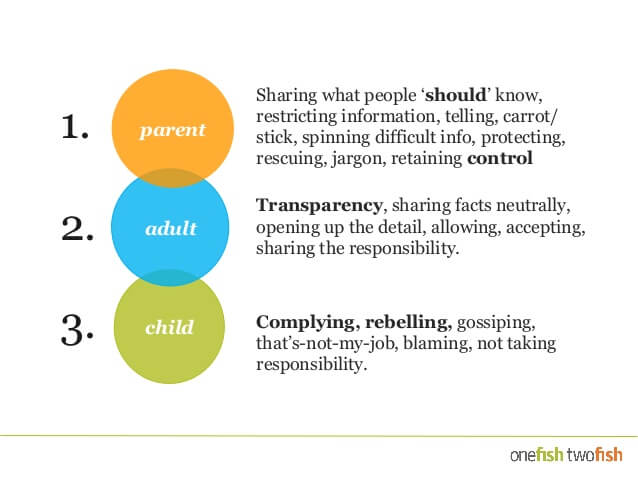
image from a SlideShare deck from OneFish TwoFish called
“How to communicate values without telling people to ‘live the values’ “
So, yesterday I wrote: “Be rid of Brilliant Jerks“. I didn’t say “Fire your Brilliant Jerks”.
So, how can you be rid of brilliant jerks without firing them, particularly in this world where hiring and firing can be a minefield laden with so much employee legislation, policies, procedures, protocols?
My answer? Lead your organisation rigorously based on values (ie where values are not just words framed on a wall or on a website!), then brilliant jerks will leave of their own volition, you won’t need to fire them.
In fact, keep reading my daily posts, as I’m going to keep riffing around this as feel like I’m on a role, and coming soon will be a post on “no fire” policies and companies that have successfully put this at their core.
Now, perhaps it feels like there is a big gap to bridge here between what you may have learned to believe to be the way to operate (eg firing the brilliant jerks) and my perhaps seemingly magical approach of having them choose to leave themselves?
Today, then, I’ll touch on a concept from psychology called Transactional Analysis (for an introduction, read here), then also on an application and evolution of this that is a passion of an inspirational friend.
Transactional Analysis:
“a system of popular psychology based on the idea that one’s behaviour and social relationships reflect an interchange between parental (critical and nurturing), adult (rational), and childlike (intuitive and dependent) aspects of personality established early in life.”
The image above is from a slideshare deck from OneFish TwoFish, a business founded by my friend Carrie Bedingfield. Carrie is currently a candidate for a PhD at Cambridge University, and her bio there starts:
“I’ve been making ‘products’ to improve and enable better human interactions at work for nearly 20 years (including Clean Communication) and now my research at Cambridge is exploring opportunities for improving the outcomes of group information sharing, idea generation and decision making events, specifically in the context of the engineering design process.”
Carrie has a wonderful obsession with this area, and I’ll link today to “Clean Communications”.
First, a little background riffing from me on why such a focus is of so much value to us (and yes, will help us be rid of Brilliant Jerks without firing them!).
So many of the classical underpinnings of employer and employee relationships are based on parent to child relationships, with the communications being critical (parent) on the one side and dependent (child) on the other.
Simplistically, employers say “do what I tell you and I will pay you, don’t follow the rules and I will fire you”.
The economic miracle of post World War II nations was based on having literally millions of men come back from war conditioned and ready to follow orders. Management and Leadership were taught (still, largely, to this day!) by leading MBA schools to be about “command and control”. Heck, the term MBA means “Masters in Business Administration”. It does not even refer to leadership, it refers to administering the business, applying the rules, so keeping people in line, enforcing policies and procedures, punishing those who don’t comply.
I’m exhausted just writing and thinking about this, I feel for those in organisations (and particularly their HR teams!) who still operate in this way.
In my work around Leadership, I study widely, including a focus on the British Army, and even the Army has radically shifted to a philosophy of empowerment of their junior ranks. Command and control? No more.
So, back to bridging between the old way and the new way of leading.
Clean Communications is a concept (and ebook, available here), innovated a few years ago by Carrie at OneFish TwoFish, grounded in concepts such as Transactional Analysis and, at a more contextual level, self-responsibility (and for this, I refer you to various posts on this site referencing Viktor Frankl). The introduction to the concept on the Clean Comms site begins:
“Clean Communication is the real and human way for companies and employees to engage. It’s the only way to break down the confusion, inertia and underlying fear that holds employees back from sparking action.
Clean Comms is grounded in self-responsibility, and consciously creating adult to adult relationships. If you want employees to truly participate, they need to understand for themselves what needs to be done and feel energised and trusted to do it.”
The Clean Communications ebook (free to read on the site) is full of wisdom and also specific tools. As the into page concludes:
“There are 4 key principles that underpin Clean Communication, nail these and the execution will follow…”
So, perhaps talk to OneFish TwoFish about Clean Communications for your organisation. I do endorse this concept and believe it has benefits for any organisation. Perhaps it may also help you be rid of any brilliant jerks who somehow are still in your business !
